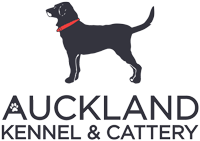Coprophagia

Sometimes coprophagia, where a dog may ingest their own faeces, the faeces of another dog or even another animal, can be an indication of more serious problems; there are both behavioural and physiological reasons why some dogs view dung as a delicacy and you should always have your dog checked out by a vet. Any circumstance that alters the way food is digested and how nutrients are absorbed can lead to coprophagia.
Why is my dog consuming faeces?
In a 2012 study, researchers led by Dr. Benjamin Hart, from the University of California, stated, “eating of fresh stools is a reflection of an innate predisposition of ancestral canids living in nature that protects pack members from intestinal parasites present in faeces that could occasionally be dropped in the den/rest area.” Coprophagia can be a normal behaviour especially in nursing bitches to keep the puppies and the den clean. Puppies may also ingest their own faeces, presumably to help establish gut flora.
Outside of these two circumstances, coprophagia is not a normal behaviour and may be associated with a poor diet, a medical condition and or a behavioural issue.
If your adult dog starts to dine on dung, you should consult with your vet to rule out any health problems and to have your dog tested for worms. When adult dogs begin to eat stools, it may be due to the malabsorption of nutrients or to dietary nutritional deficiencies. Dogs may try to re-digest the food to get all of the nutrients they can from their poo.
Medical Problems:
- A lack of nutrients in their diet. Dogs that are placed on extreme calorie restriction or that are fed poorly balanced diets may begin to eat their stools.
- Dogs that have parasites or worms do not digest food properly because the parasites consume many of the nutrients. Roundworms, hookworms, whipworms and giardia are parasites frequently found in faecal examinations.
- Malabsorption syndromes
- Diabetes, thyroid disease, and other conditions that might cause an increase in appetite.
Your vet may suggest a change in diet to one that is more digestible, or one with different protein sources. Dogs on restricted calorie diets may do better on a high bulk or high fibre formula. It seems most dogs seem to prefer a well-formed stool. Some dogs may be improved by adding digestive enzymes or food additives may help increase protein digestion, resulting in a less palatable stool.
Behavioural problems
Coprophagia has been associated with behavioural issues such as attention seeking, anxiety, lack of enrichment, environmental stress and as a learned behaviour from another dog in the household.
In many cases, dogs start to eat their own poop because of some kind of environmental stress or behavioural triggers, including:
- Isolated or restrictive confinement: Spending too much time confined in a small spaces can cause the problem.
- Anxiety: often a result of a person using punishment or harsh methods during housetraining such as ‘sticking the dog’s nose in it’. Dogs may eat their own poop to get rid of the evidence, but then they are punished for it. It becomes a vicious cycle.
- Attention-seeking: Dogs eat their own poop to get a reaction from their humans, which they inevitably will, so if you see your dog doing this, don’t overreact.
Feeding habits can play a role. A good example is where several dogs are fed at the same time. The competition at feeding time can speed up ingestion. Too much food eaten quickly can accelerate the movement of food through the bowel, leading to the poor assimilation of nutrients.
What should I do if my dog is coprophagic?
It is imperative that you consult your veterinarian. If a medical cause is ruled out, your veterinarian will be able to suggest some behavioural strategies to help.
The behavioural strategies your veterinarian may suggest could be based around avoiding faeces-eating opportunities, redirecting your dog’s attention or teaching an alternate behaviour.
How to stop your dog from eating poop
Coprophagia can best be corrected by preventing access to stools through cleaning your pet’s environment, through supervision and through positive reinforcement immediately following “going”. Training and environmental management methods can include:
- Keep the dog’s living area clean, including the yard or garden so there will be nothing for him to indulge in.
- Teach your dog to come to you for a food treat as soon as he has “gone”. That way, your dog will develop a habit to run to you for a tasty tidbit, instead of reaching for the revolting recyclable on the ground.
- Exercise is a great way to reduce stress.
As there can be numerous causes for coprohpagia your veterinarian should always be consulted. Medical issues relating to the pancreas or gastrointestinal tract can affect the digestion of food. Your vet will be able to identify and treat any medical causes and provide appropriate behavioural advice for your dog where necessary.
If your dog’s eating habits need to be monitored, let us know by calling 09 299 7415 before enrolling your dog in day care or booking to stay in the kennels.
